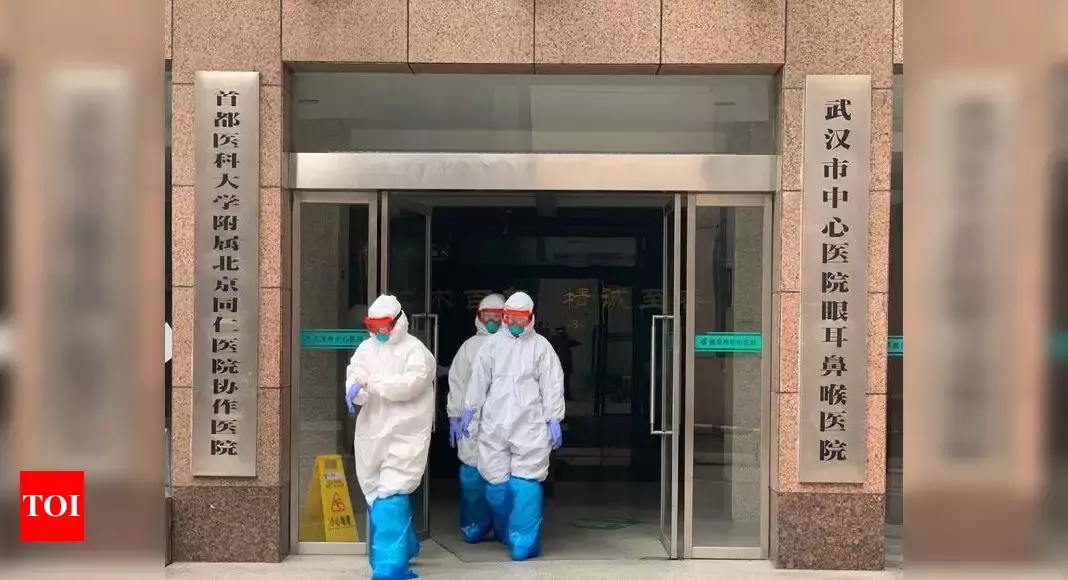An entrance to the Wuhan City Central Hospital in Wuhan.
WUHAN: President Xi Jinping strode onstage before an adoring audience in the Great Hall of the People in Beijing less than three weeks ago, trumpeting his successes in steering China through a tumultuous year and promising “landmark” progress in 2020.
“Every single Chinese person, every member of the Chinese nation, should feel proud to live in this great era,” he declared to applause on the day before the Lunar New Year holiday. “Our progress will not be halted by any storms and tempests.”
Xi made no mention of a dangerous new coronavirus that had already taken tenacious hold in the country. As he spoke, the government was locking down Wuhan, a city of 11 million people, in a frantic attempt to stop the virus spreading from its epicenter.
Live updates: China virus death toll hits 800, over 37,000 infected
The coronavirus epidemic, which has killed more than 800 people in China as of Sunday and sickened tens of thousands, comes as Xi has struggled with a host of other challenges: a slowing economy, huge protests in Hong Kong, an election in Taiwan that rebuffed Beijing and a protracted trade war with the United States.
Now Xi faces an accelerating health crisis that is also a political one: a profound test of the authoritarian system he has built around himself over the past seven years. As the Chinese government struggles to contain the virus amid rising public discontent with its performance, the changes that Xi has ushered in could make it difficult for him to escape blame.
“It’s a big shock to the legitimacy of the ruling party. I think it could be only second to the June 4 incident of 1989. It’s that big,” said Rong Jian, a writer about politics in Beijing, referring to the armed crackdown on Tiananmen Square protesters that year.
“There’s no doubt about his control over power,” he added, “but the manner of control and its consequences have hurt his legitimacy and reputation.”
Xi himself has recognized what is at stake, calling the outbreak “a major test of China’s system and capacity for governance.”
Yet as China’s battle with the coronavirus intensified, Xi put the country’s No. 2 leader,

